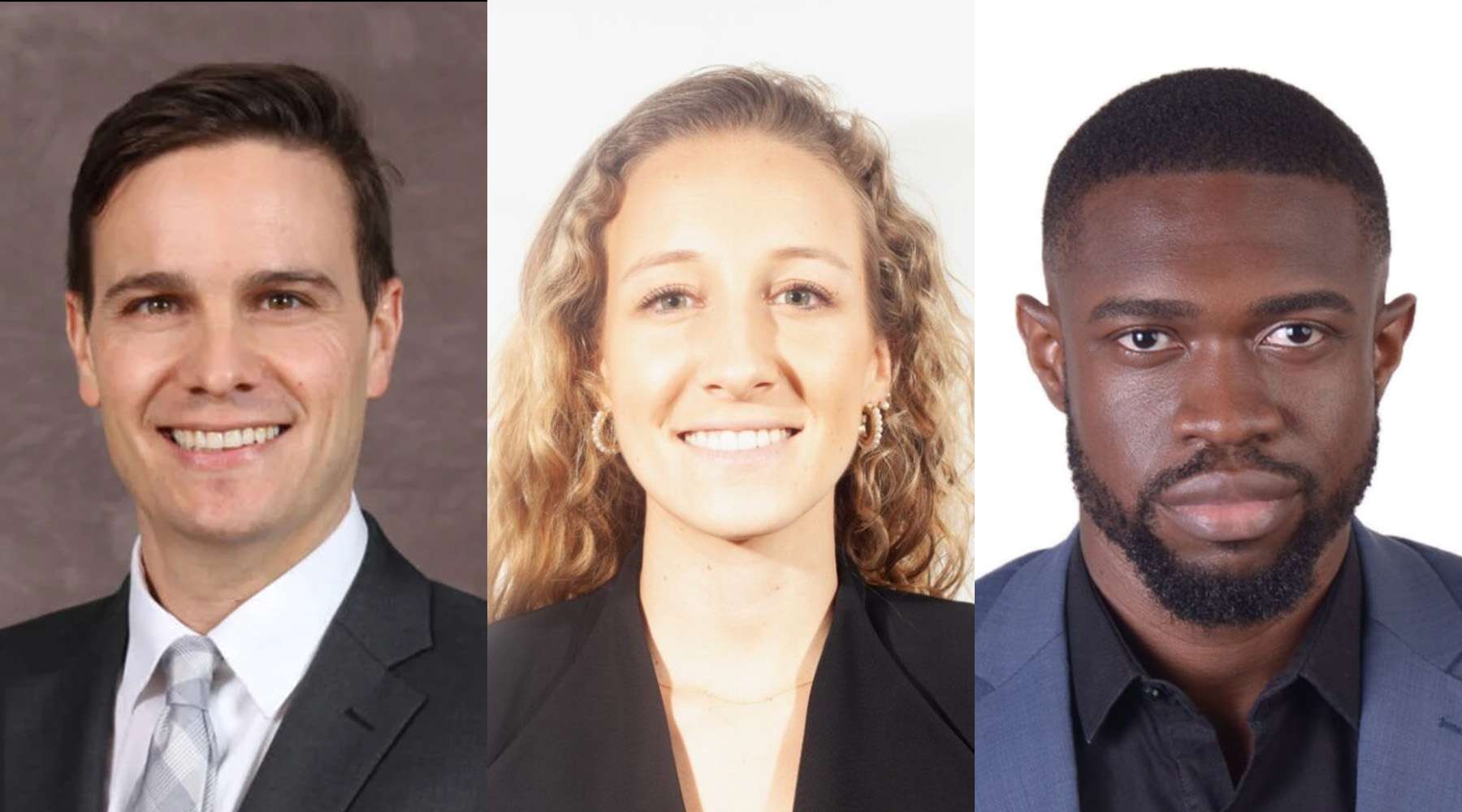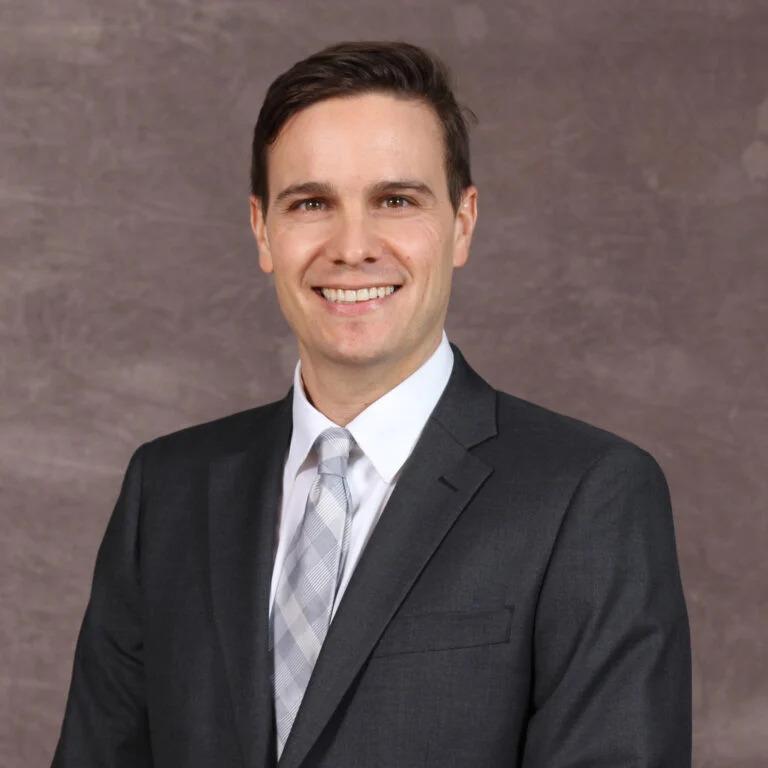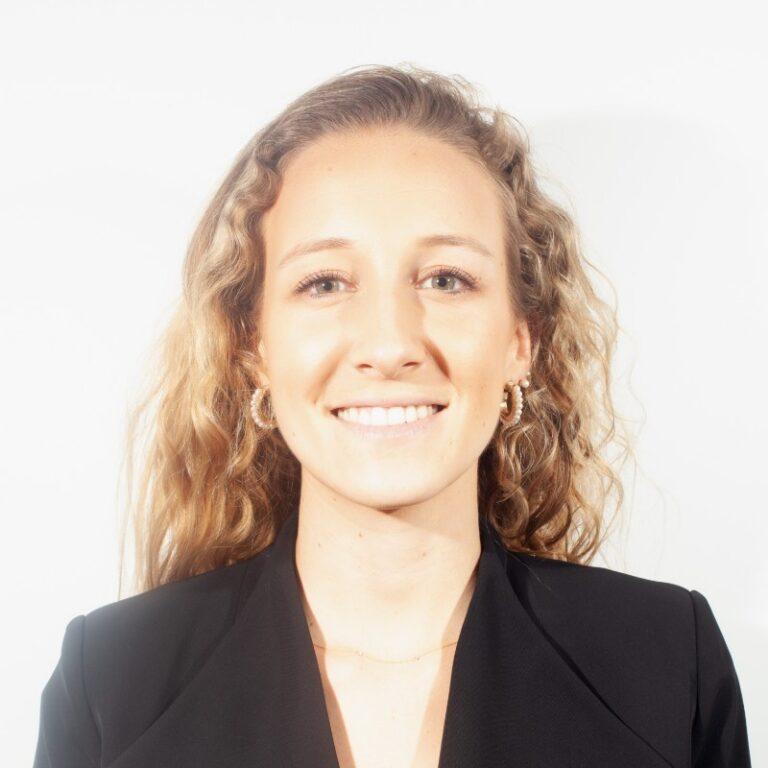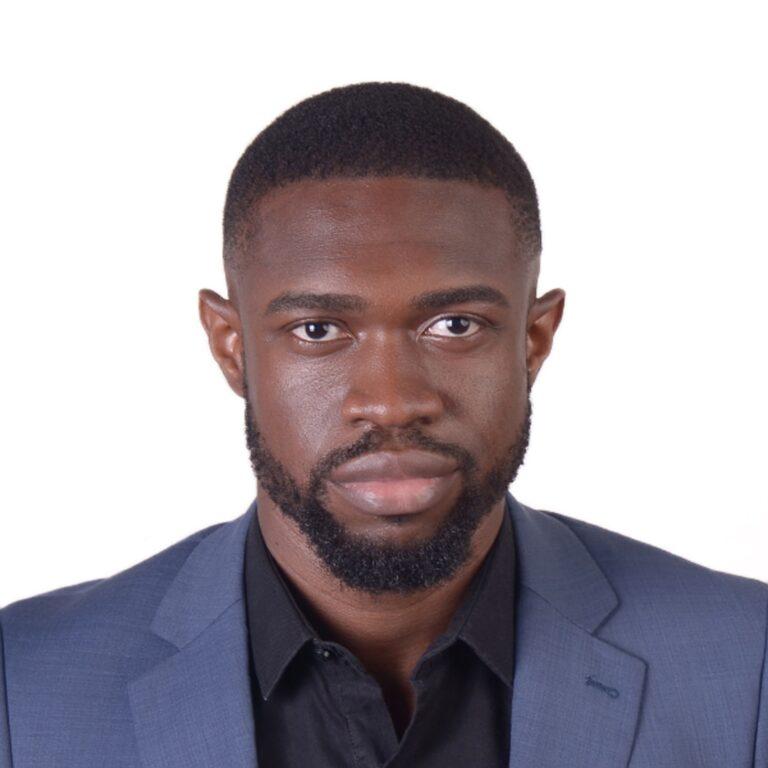
Tuck’s close-knit community, personal development-focused and leadership-enhancing curriculum, and wide array of cutting-edge electives prepare new graduates for the gauntlet of investment banking recruiting.
A quarter of MBA graduates from Tuck routinely begin careers in the elite world of finance; we sat down with three who recently made the journey from the Upper Valley to Wall Street.

Hometown: Olavarria, Argentina
Undergraduate Education: Industrial Engineer, UNICEN
Pre-MBA Work Experience: Technical Sales Engineer/Sales Senior Manager at Tenaris, 9 years
Post-MBA Role: Bank of America, Investment Banking Associate
Why did you choose Dartmouth Tuck for your MBA? What factors figured most prominently into your decision?
When evaluating different programs, I was willing to compromise on some things. But there were two things I was not flexible with. First, I wanted to have this experience in a place that would allow me to be myself. I believe in people, honesty, deep connections, and kindness, and was not willing to join a program in which those values were not a part of their core. Second, I wanted this experience to be for both me and my partner, Sol. While she did not apply to the program, we both viewed this as an opportunity to learn, meet new people, and become part of a community for life. The MBA had to be as welcoming for me as for my partner.
When we both visited Tuck during Admitted Student Weekend, we quickly realized it was a no-brainer!
What would you like prospective and current Tuck students to know about pursuing a career in investment banking?
Trust the process and enjoy it. Tuck has amazing professors who are always willing to help (with concepts, practice, mock interviews, etc.), it has the best career advisors (well-known and super connected across the Street), and it has a one-of-a-kind network that you can and should tap into early on. If you leverage all those resources, work hard, and follow the process, no matter whether you’re an international student or don’t have a financial background, chances are that you will find the job you want and will be set up for success. And it goes without saying, but always feel free to reach out to alumni in the roles you’re recruiting for … we love hearing from Tuckies.
Read Franco’s Full Story on Clear Admit

Hometown: Monterrey, Mexico
Undergraduate Education: BS in Industrial Engineering with a minor in Systems Engineering, Tecnologico de Monterrey
Pre-MBA Work Experience: Founder at Uno Punto Cinco, 1 year; Business Consultant at Galera, 3 years
Post-MBA Role: Investment Banking Associate at Citi
Why did you pursue an MBA?
I pursued an MBA because I wanted to develop a versatile skill set to grow as a professional through a unique and immersive learning experience. I was also excited about the opportunity of doing so in a very competitive and challenging environment like a top business school in the U.S.
What advice do you have for other prospective MBAs considering MBA programs and entering the finance space?
I would say think a lot about what you are passionate about; you can actually find a job that is a great professional opportunity and is also aligned with your passions. You will spend a lot of time working, so you might as well try to find something that you are very interested in and care about.
I would also recommend paying a lot of attention to your classes and learning from your professors. An MBA is an amazing opportunity to learn from very prepared and smart professionals in the field.
Finally, I recommend following your gut and finding a space that will allow you to shine. If you don’t feel very comfortable with finance from the beginning, there might be other opportunities that can be better for you and that is ok.
Read Barbara’s Full Story on Clear Admit

Hometown: Lagos, Nigeria
Undergraduate Education: Finance, Nnamdi Azikiwe University Nigeria
Pre-MBA Work Experience: Senior Associate at KPMG Nigeria, 5 years
Post-MBA Role: Investment Banking Associate at Goldman Sachs
Let’s talk about living in New York after Tuck. What was that experience like?
I think you will scarcely find a more jarring contrast than moving from Hanover, NH to Manhattan, NY. It is difficult not to miss the serenity and familiarity of Tuck. I would run into my classmates so often when I was in Hanover, and it gave me a feeling of belonging. New York was a whole different ball game. It’s this super exciting, fast-paced city where it’s easy to feel overwhelmed. Two things made the move smoother: first, I’d lived and worked in Lagos, Nigeria—a bustling metropolis—before my MBA, so city life wasn’t new to me. Plus, the Tuck community remained rock-solid even in New York.
Even with a busy schedule, I manage to catch up regularly with classmates who’ve settled here or are just visiting. And I make a point to hit the soccer field every other weekend with a buddy and former soccer cocaptain from Tuck. While it has been a significant life change, the relationships that took root in the relative tranquility of Hanover endure in the big city.
Why have you pursued a career in finance?
My interest in finance began in secondary school (the rough equivalent of high school). Nigeria had undergone a bank recapitalization in 2005 that condensed the banking industry from over 80 banks to about 25. Listening in on conversations around this and reading the dailies in my school library sparked my interest in finance and ultimately led me to study it in college.
I got some real-world insights during a nine-month internship at a bank and my first job at KPMG. Those experiences really solidified my understanding of finance. By the time I was thinking about pursuing my MBA, I was pretty sure about the direction I wanted to take in the finance world.